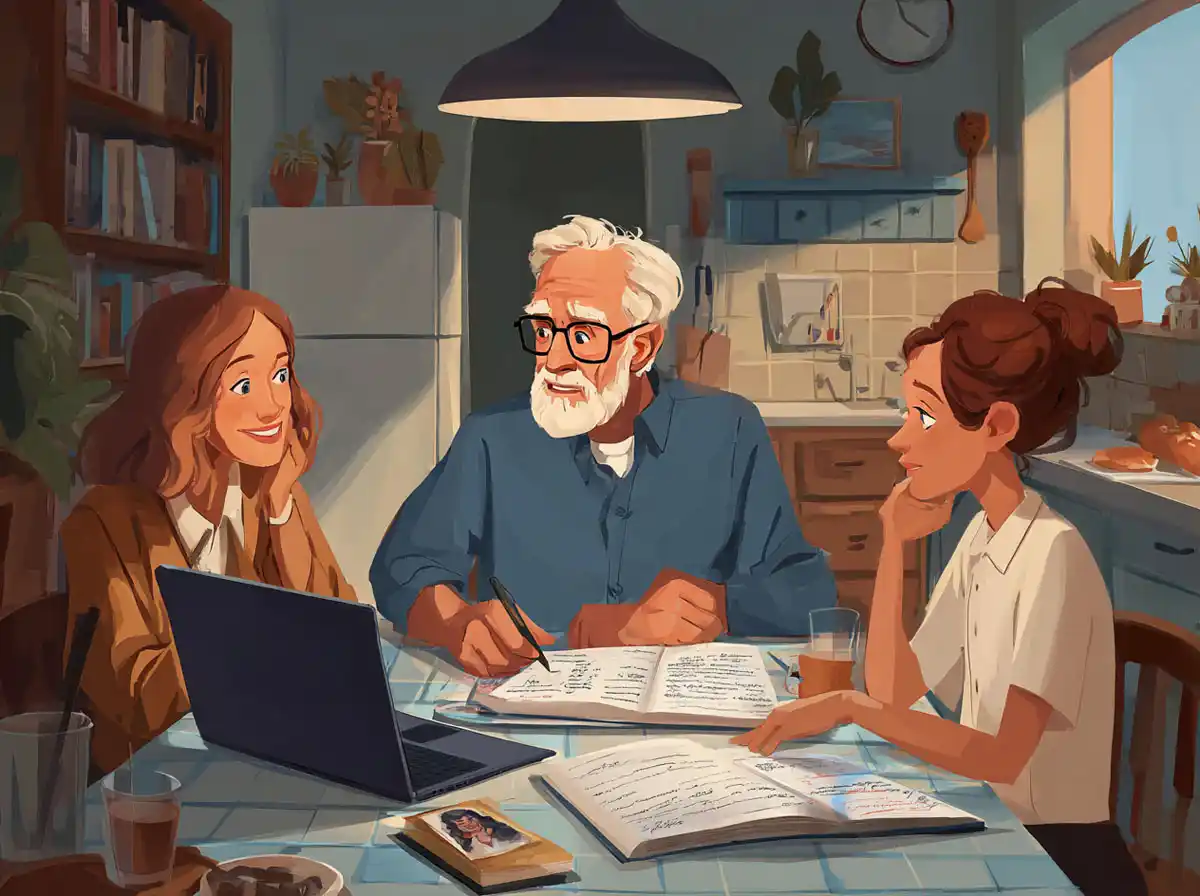Basic Verbs
1. Ser – to be (permanent)
– Example: Eu son estudante. (I am a student.)
2. Estar – to be (temporary)
– Example: Estou feliz. (I am happy.)
3. Ter – to have
– Example: Teño un coche. (I have a car.)
4. Ir – to go
– Example: Vou á escola. (I go to school.)
5. Facer – to do, to make
– Example: Fago os meus deberes. (I do my homework.)
6. Poder – to be able to, can
– Example: Podo falar galego. (I can speak Galician.)
7. Querer – to want
– Example: Quero un café. (I want a coffee.)
8. Saber – to know
– Example: Sei a resposta. (I know the answer.)
9. Ver – to see
– Example: Vexo a televisión. (I watch TV.)
10. Chegar – to arrive
– Example: Chego á casa ás seis. (I arrive home at six.)
Useful Nouns
11. Casa – house
– Example: A miña casa é grande. (My house is big.)
12. Escola – school
– Example: Vou á escola todos os días. (I go to school every day.)
13. Traballo – work, job
– Example: Teño moito traballo. (I have a lot of work.)
14. Cidade – city
– Example: Vivo na cidade. (I live in the city.)
15. Praia – beach
– Example: A praia está fermosa. (The beach is beautiful.)
16. Amigo/a – friend
– Example: A miña amiga é moi simpática. (My friend is very nice.)
17. Familia – family
– Example: Teño unha familia grande. (I have a big family.)
18. Comida – food
– Example: A comida galega é deliciosa. (Galician food is delicious.)
19. Coche – car
– Example: O meu coche é vermello. (My car is red.)
20. Tempo – time, weather
– Example: Non teño tempo. (I don’t have time.)
Common Adjectives
21. Grande – big
– Example: A cidade é grande. (The city is big.)
22. Pequeno/a – small
– Example: A casa é pequena. (The house is small.)
23. Novo/a – new
– Example: O coche é novo. (The car is new.)
24. Vello/a – old
– Example: O libro é vello. (The book is old.)
25. Bo/a – good
– Example: A comida está boa. (The food is good.)
26. Malo/a – bad
– Example: O tempo está malo. (The weather is bad.)
27. Bonito/a – beautiful
– Example: A praia é bonita. (The beach is beautiful.)
28. Feo/a – ugly
– Example: O edificio é feo. (The building is ugly.)
29. Fácil – easy
– Example: O exame foi fácil. (The exam was easy.)
30. Difícil – difficult
– Example: A tarefa é difícil. (The task is difficult.)
Essential Adverbs
31. Sempre – always
– Example: Ela sempre está feliz. (She is always happy.)
32. Nunca – never
– Example: Nunca vou á praia no inverno. (I never go to the beach in winter.)
33. Agora – now
– Example: Estou estudando agora. (I am studying now.)
34. Logo – soon
– Example: Vou verche logo. (I will see you soon.)
35. Onte – yesterday
– Example: Onte foi un día longo. (Yesterday was a long day.)
36. Hoxe – today
– Example: Hoxe é un bo día. (Today is a good day.)
37. Mañá – tomorrow
– Example: Mañá é luns. (Tomorrow is Monday.)
38. Aquí – here
– Example: Estou aquí. (I am here.)
39. Alí – there
– Example: O libro está alí. (The book is there.)
40. Xa – already
– Example: Xa rematei. (I already finished.)
Important Prepositions
41. En – in, on
– Example: Estou en casa. (I am at home.)
42. De – of, from
– Example: Son de Galicia. (I am from Galicia.)
43. Con – with
– Example: Vou con ela. (I am going with her.)
44. Sen – without
– Example: Non podo vivir sen ti. (I cannot live without you.)
45. Para – for, to
– Example: Este libro é para ti. (This book is for you.)
46. Por – by, through
– Example: Paso por alí todos os días. (I pass by there every day.)
47. A – to, at
– Example: Vou a Santiago. (I am going to Santiago.)
48. Entre – between, among
– Example: A tenda está entre a escola e a biblioteca. (The store is between the school and the library.)
49. Sobre – about, on
– Example: O libro é sobre historia. (The book is about history.)
50. Despois – after
– Example: Imos ao parque despois da escola. (We go to the park after school.)
Conclusion
Mastering these 50 essential words will significantly improve your ability to communicate in Galician at a B1 level. Remember, language learning is a gradual process that requires consistent practice and exposure. Try to use these words in sentences, engage in conversations with native speakers, and immerse yourself in Galician culture. The more you practice, the more naturally these words will come to you. Boa sorte! (Good luck!)










